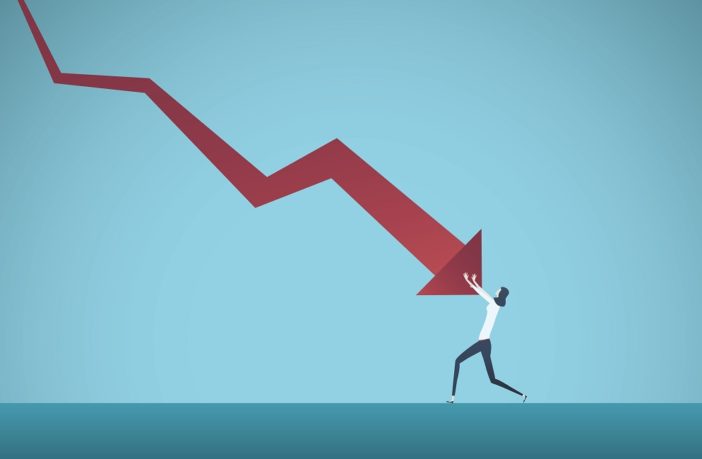Suicide is a devastating event, affecting individuals, families and societies. It is widely associated with mental ill health and the focus of suicide prevention campaigns is often on individual level interventions such as improving awareness and willingness to use community and health services. However, suicide is also associated with social factors such as unemployment and debt. As we mark World Suicide Prevention Day on 10 September, Dr Sharon Mallon, Lecturer in Mental Health at The Open University discusses what history can tell us about how Brexit and the economic uncertainty that is predicted to follow a ‘No Deal’ exit from the EU might affect suicide rates in the UK.
Back in 2010, shortly after the Global Financial Crisis, I was working on a project looking at suicides that had occurred in Northern Ireland in the years from 2007-2009. Working with a team of researchers, we interviewed 78 family members about why their relative had died by suicide. Our early impressions from this research fits with what is now widely accepted, that in the aftermath of the global meltdown, the economic strain caused by job losses, lack of stable employment or steady wages and resulting debt, exacerbated or caused mental health difficulties and tragically, in some cases contributed to death by suicide.
 In the UK, over the years between 2008-2010, it is now estimated that around 1000 additional suicides took place (McVeigh, 2015). Research evidence published in 2015 concluded that the combined forces of financial strain, unemployment and the policy of austerity were significant factors in bringing about this increased rate of suicide (McVeigh, 2015).
In the UK, over the years between 2008-2010, it is now estimated that around 1000 additional suicides took place (McVeigh, 2015). Research evidence published in 2015 concluded that the combined forces of financial strain, unemployment and the policy of austerity were significant factors in bringing about this increased rate of suicide (McVeigh, 2015).
Although, researchers and mental health practitioners are continuously striving to better understand suicide, and to work towards preventing these tragic deaths, we need to accept that there are complex interactions between individual experiences and wider social, political and economic conditions that are outside of the power of most individuals and beyond the reach of health services.
Of course, we don’t know yet what will happen to the UK economy. We do know that the NHS Confederation’s Mental Health Network assessed the issue in 2018. Their report suggested that leaving the EU would have significant implications for mental health services, not only among those likely to be directly and personally affected, but also the wider population who are likely to be worried about possible consequences and uncertainty about the future (Zanon, 2019).
Careful monitoring of vulnerable groups and community awareness are crucial to reducing national suicide rates. The National Farmers Union has already suggested that its members are on suicide watch as a result of the strain caused by Brexit uncertainty (Parvenon, 2019).
Some academics, including me, think we need to fundamentally rethink suicide and suicide prevention, to take into account and where possible plan for the impact of political events. However, regrettably the appointment of a Minister for Mental Health, Inequalities and Suicide Prevention, that was so widely welcomed in October 2018 and held so much scope for focusing attention on this overlooked area, was short lived as the post disappeared in the July 2019 cabinet reshuffle.
 Nevertheless, as we approach World Suicide Prevention Day it is also important to remain hopeful. Suicide is a complicated phenomenon, there are many reasons why someone might take their own lives. While economic factors and uncertainty can all be triggers, the International Association for Suicide Prevention (IASP), the lead organiser of World Suicide Prevention Day remind us that that we can all play a role in watching out for those who are at risk.
Nevertheless, as we approach World Suicide Prevention Day it is also important to remain hopeful. Suicide is a complicated phenomenon, there are many reasons why someone might take their own lives. While economic factors and uncertainty can all be triggers, the International Association for Suicide Prevention (IASP), the lead organiser of World Suicide Prevention Day remind us that that we can all play a role in watching out for those who are at risk.
-
Take a minute to notice what is going on with you, your family, your friends and your colleagues.
-
Take a minute to reach out and start a conversation if you notice something is different.
-
Take a minute to find out what help is available for both you and others.
References:
Parvenen, N. (2019) ’Brexit and bad weather puts UK Farmers at risk of suicide’ https://www.theguardian.com/environment/2019/mar/03/brexit-and-bad-weather-puts-uk-farmers-at-risk-of-suicide-say-charities [accessed 9th September 2019]
Mc Veigh, K. (2015) ‘Austerity a factor in rising suicide rate among UK men’ https://www.theguardian.com/society/2015/nov/12/austerity-a-factor-in-rising-suicide-rate-among-uk-men-study [accessed 9th September 2019]
Zanon, E. (2019) ‘Brexit and the NHS Mental Health Services.’ https://healthbusinessuk.net/features/brexit-and-nhs-mental-health-services [accessed 9th September 2019]
Find out more
About World Suicide Prevention Day and IASP
Other useful resources at Mind and Samaritans
Our free OpenLearn course, Making sense of mental health problems can help you reflect on the medical, psychological and social need perspectives to make sense of mental ill-health
About studying OU modules, Mental Health and Community and Approaches to Mental Health



